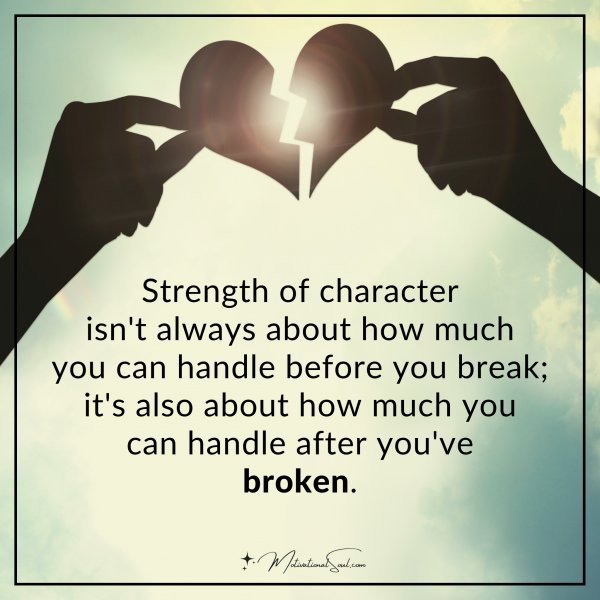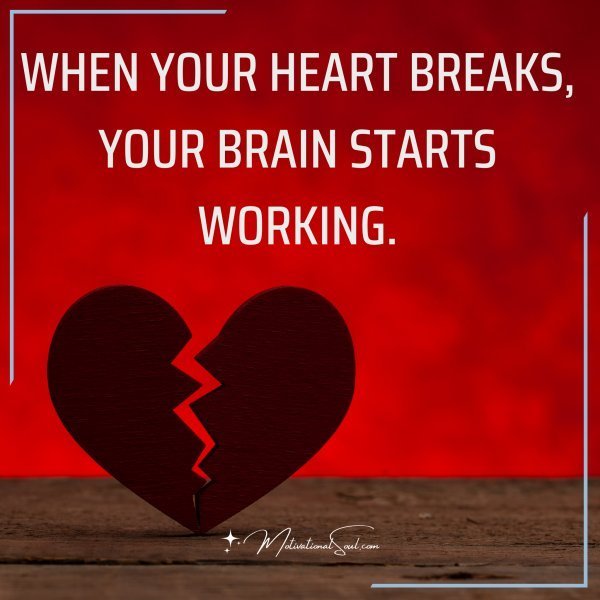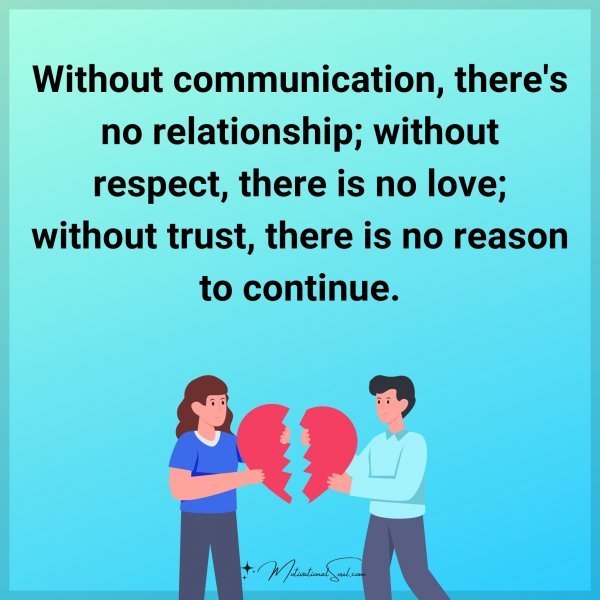Dealing With an Emotional Breakdown


It’s not always easy to deal with an emotional breakdown. When life gives you lemons, sometimes it feels like everything is going wrong. You may feel like you can’t cope with the stress anymore and that things are just too much for you to handle if this sounds like you, know that you are not alone. Millions of people experience emotional breakdowns every year. This blog post will discuss ways to deal with an emotional breakdown and get your life back on track!
What Is an Emotional Breakdown?
An emotional breakdown is a period of time when a person experiences intense emotional distress. This can be caused by a variety of things, such as relationship problems, job stress, financial troubles, or even just the day-to-day grind of life.
When someone goes through an emotional breakdown, they may feel unable to cope with their problems. They may feel hopeless, helpless, and like they are just going through the motions of life without any joy or purpose. Emotional breakdowns can last a few days or weeks and can be extremely debilitating.
Symptoms of an Emotional Breakdown
You may experience the following thoughts during an emotional breakdown:
- “I can’t do this anymore.”
- “I’m such a failure.”
- “I’m not good enough.”
- “Everyone would be better off without me.”
Physical Symptoms
- Fatigue or exhaustion
- Insomnia
- Headaches
- Muscle tension or aches
- Stomach problems
- Chest pain
Emotional Symptoms:
- Anxiety
- Panic
- Sadness
- Irritability
- Anger
- Guilt
- Shame
Causes of an Emotional Breakdown
There are many different causes of emotional breakdowns. Some people may be more susceptible to them than others, but anyone can experience one in their lifetime. The most common causes of emotional breakdowns include:
- Stressful life events: Experiencing a traumatic event or series of stressful life changes can lead to an emotional breakdown.
- Mental health conditions: A mental health condition can increase your risk of emotional breakdown.
- Biological factors: There is evidence to suggest that certain biological factors, such as a family history of mental illness, may increase your risk of emotional breakdown.
- Substance abuse: Using drugs or alcohol can also contribute to the development of an emotional breakdown.
- Relationship difficulties: Dealing with relationship problems can be extremely stressful, and this stress can lead to an emotional breakdown.
- Illness or injury: An illness or injury can cause physical and emotional stress, which can lead to an emotional breakdown.
- Grief: Grief is a natural response to loss and can be overwhelming. People who are grieving may be at risk for an emotional breakdown.
How to Know if You’re Having an Emotional Breakdown
There is no definitive way to diagnose an emotional breakdown, as there is no official diagnosis for it in mental health manuals. However, a healthcare provider can evaluate your symptoms and suggest treatment options to help you address them. They may also work with you to develop a comprehensive treatment plan.
Your healthcare provider will determine whether you have a mental health condition depending on your symptoms and their intensity, says Dr. Romanoff.
If not, therapy and support that can help you cope with the challenges you’re experiencing can still be provided by them.
How does Emotional Breakdown Impacts Your Life?
An emotional breakdown can have a significant impact on your life.
- It can interfere with your ability to work, study, and take care of yourself.
- You may find it difficult to concentrate, make decisions, or even leave the house.
Emotional breakdowns can also lead to relationship problems, as you may withdraw from your loved ones or become overly reliant on them for support.

Can a Nervous Breakdown be Prevented?
There is no sure way to prevent an emotional breakdown, as many different causes exist. However, there are some things you can do to reduce your risk. These include:
- Managing stress: Try to identify the sources of stress in your life and find ways to manage them. This may involve making lifestyle changes, such as getting more exercise or learning how to meditate.
- Practicing self-care: Make sure you are taking care of yourself emotionally and physically. This includes getting enough sleep, eating a balanced diet, and avoiding substances that can harm your health.
- Building a support system: Lean on your friends and family members when you are feeling overwhelmed. Talking to someone who cares about you can help reduce stress and promote healing.
How to Treat an Emotional Breakdown
There is no one-size-fits-all approach to treating an emotional breakdown, but some of the ways are listed below for you.
Get Some Perspective
The first step is to get some perspective. Remind yourself that this is not the first time you have felt this way and that you have successfully overcome difficult emotions in the past. Secondly, taking care of yourself physically and emotionally is important. Eat healthy meals, get enough sleep, and avoid drugs and alcohol. Finally, seeking professional help can be extremely helpful in managing an emotional breakdown. A therapist can provide support and guidance as you work through negative emotions. You will eventually recover from an emotional breakdown and feel better again with time and effort.
The most important thing you can do during an emotional breakdown is to focus on self-care. This means taking the time to do things that make you happy and relax your mind and body. It may also mean seeking professional help if you feel like you cannot cope on your own. However, if you choose to care for yourself, remember that an emotional breakdown is not a sign of weakness – it is simply a sign that you need some extra care.
Tips for self-care:
Focus on Self-Care
- Get enough sleep
- Eat healthy meals
- Avoid drugs and alcohol
- Exercise regularly
- Take breaks when you need them
- Spend time with supportive people
Talk to a Therapist
If you’re struggling to cope with an emotional breakdown on your own, talking to a therapist can be extremely helpful. A therapist can provide support and guidance as you work through negative emotions. They can also help you develop coping mechanisms for dealing with future stressors. If you don’t feel like talking to a therapist, you can also talk to a trusted friend or family member.
Medication
Some people may feel like they need medication to help them cope with an emotional breakdown. You should speak to your healthcare provider about your options if this is the case. They will be able to prescribe medication if they feel it is necessary. Medication can be an effective treatment for some people, but it is not right for everyone.
Give Yourself Time
Recovery from an emotional breakdown takes time. There is no set timeline for how long it will take to feel better. However, most people start to feel better within a few weeks with the help of self-care and professional treatment. It is important to be patient with yourself and understand that recovery is a process.
Practice Self-Compassion
One of the most important things you can do during an emotional breakdown is to practice self-compassion. This means being kind and understanding towards yourself. Remember that you are going through a tough time and that it is okay not to be perfect. Beating yourself up will only make things worse. Instead, try to focus on taking care of yourself and being gentle with yourself.
Communicate Your Needs
Communicating your needs is important during an emotional breakdown. This means letting your friends and family know what you need from them. It may be helpful to let them know what kind of support you are looking for. For example, you may need someone to talk to or help with day-to-day tasks. Asking for help can be difficult, but it is important to communicate your needs during this time.

Dropping into the Present Moment
When you’re in the midst of an emotional breakdown, it can be difficult to see things clearly. Your mind is likely racing, and you may be feeling overwhelmed. One way to cope with this is to focus on the present moment. This means grounding yourself in the here and now and focusing on your breath. This can help you feel tranquility and more in control.

Practice Meditation
Meditation can be helpful for dealing with an emotional breakdown. It can help you focus on the present moment and calm your mind.Different types of meditation work for different people, so find the one that works for you. You can try guided meditation, mindfulness meditation, or transcendental meditation.
Reduce Technology Use
If you’re struggling to cope with an emotional breakdown, reducing your use of technology may be helpful. This means spending less time on your phone, computer, and social media. Technology can be a major source of stress and make things feel worse. If you need a break from technology, try disconnecting for a day or two.
Have patience
Remember that recovery takes time. There is no set timeline for how long it will take to feel better. However, most people start to feel better within a few weeks with the help of self-care and professional treatment. It is important to be patient with yourself and understand that recovery is a process.
Acknowledge Your Feelings
One of the most important things you can do during an emotional breakdown is to acknowledge your feelings. This means accepting that you are feeling pain and allowing yourself to experience it. It’s natural to feel dejected, scared, or enraged. Denying your feelings will only make things worse in the long run. Acknowledging them will help you start to work through them.
Recovery From an Emotional Breakdown
No one is immune to hardships and emotional breakdowns. At some point in our lives, we all go through tough times. And while it’s never easy to deal with an emotional breakdown, it is possible to recover and come out stronger on the other side.
Recovery takes time, but it is possible to get through this tough time. Acknowledge your feelings, communicate your needs, and focus on the present moment. These things will help you start to feel better. Finally, don’t forget to ask for help when you need it.Support from friends and family can make a big difference.
You Might Also Like




Recent Comments